Top 10 APIs for Marketers (2026)
Explore the top 10 APIs for marketers in 2026, featuring essential tools for automation, data enrichment, and streamlined integration.
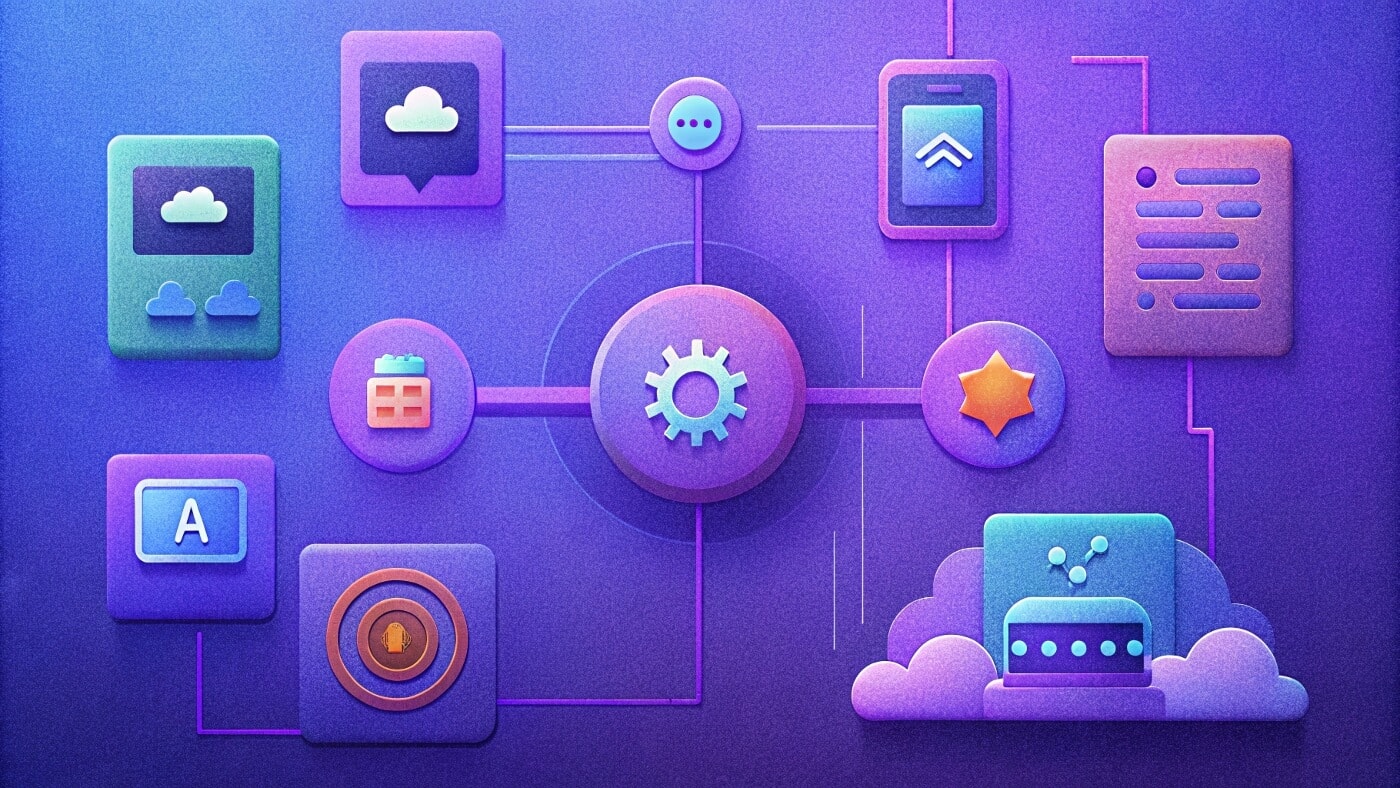
Explore the top 10 APIs for marketers in 2026, featuring essential tools for automation, data enrichment, and streamlined integration.

APIs for marketers are crucial for optimizing workflows, enhancing data capabilities, and ensuring seamless integrations across various platforms.
As the demand for automation continues to rise, understanding the best APIs available can provide marketers with the competitive edge they need.
In this guide, we’ll explore the top 10 APIs for marketers available in 2026.
The evaluation process for APIs for marketers focused on these key criteria:
The methodology involved testing the tools, consulting experts, and conducting extensive online research to ensure every API met the needs of modern marketers.
Software | Best For | Key Features | Pricing | Free Plan | Platforms Available |
|---|---|---|---|---|---|
Data enrichment | Comprehensive data insights, API documentation | Starting at $49/mo | Yes | Web | |
Workflow automation | Integrations with 5,000+ apps, automation workflows | Starting at $19.99/mo | Yes | Web | |
Lead enrichment | Real-time data, API access | Custom pricing | Yes | Web | |
B2B intelligence | Extensive contact database, data enrichment | Custom pricing | No | Web | |
Email automation | Email tracking, powerful APIs | Starting at $15/mo | Yes | Web | |
Data management | Customer data pipeline, integrations | Starting at $120/mo | Yes | Web | |
CRM & inbound marketing | Marketing automation, CRM tools | Free & paid tiers | Yes | Web, iOS, Android | |
Web analytics | Visitor tracking, reporting | Free | Yes | Web | |
CRM & marketing | Sales tracking, marketing cloud | Starting at $25/mo | Yes | Web, iOS, Android | |
Communication | Programmable messaging, voice APIs | Pay as you go | Yes | Web |
Best for data enrichment and customer insights.
Proxycurl specializes in providing detailed business and consumer data, which is crucial for marketers looking to enhance their customer insights.
With its robust API, Proxycurl allows users to enrich their existing databases with up-to-date information, helping to create more targeted campaigns.
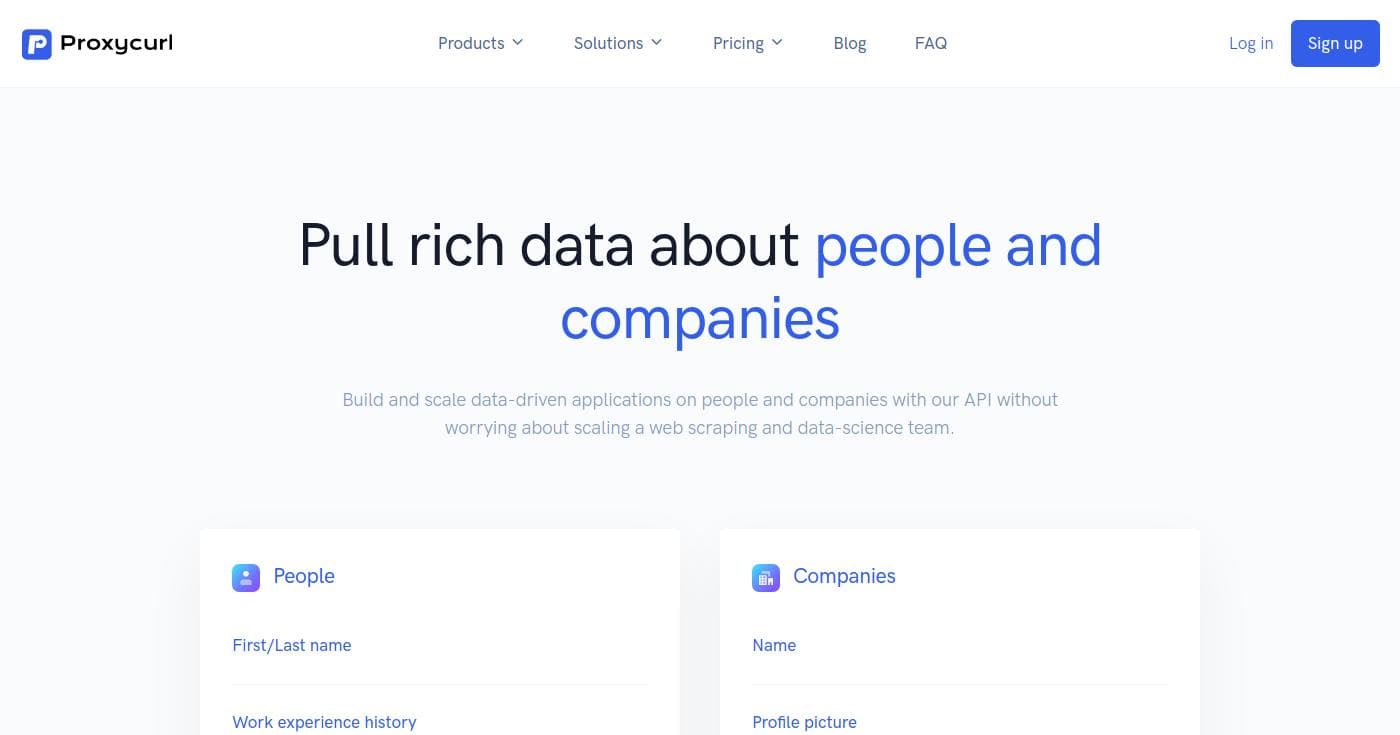
Proxycurl starts at $49/month, making it accessible for various business sizes while providing essential data features that can enhance marketing strategies.
For detailed pricing, visit their pricing page.
Best for workflow automation and integrations.
Zapier is an automation tool that connects thousands of apps to streamline marketing workflows.
By creating “Zaps,” users can automate repetitive tasks and ensure that data flows seamlessly between platforms.
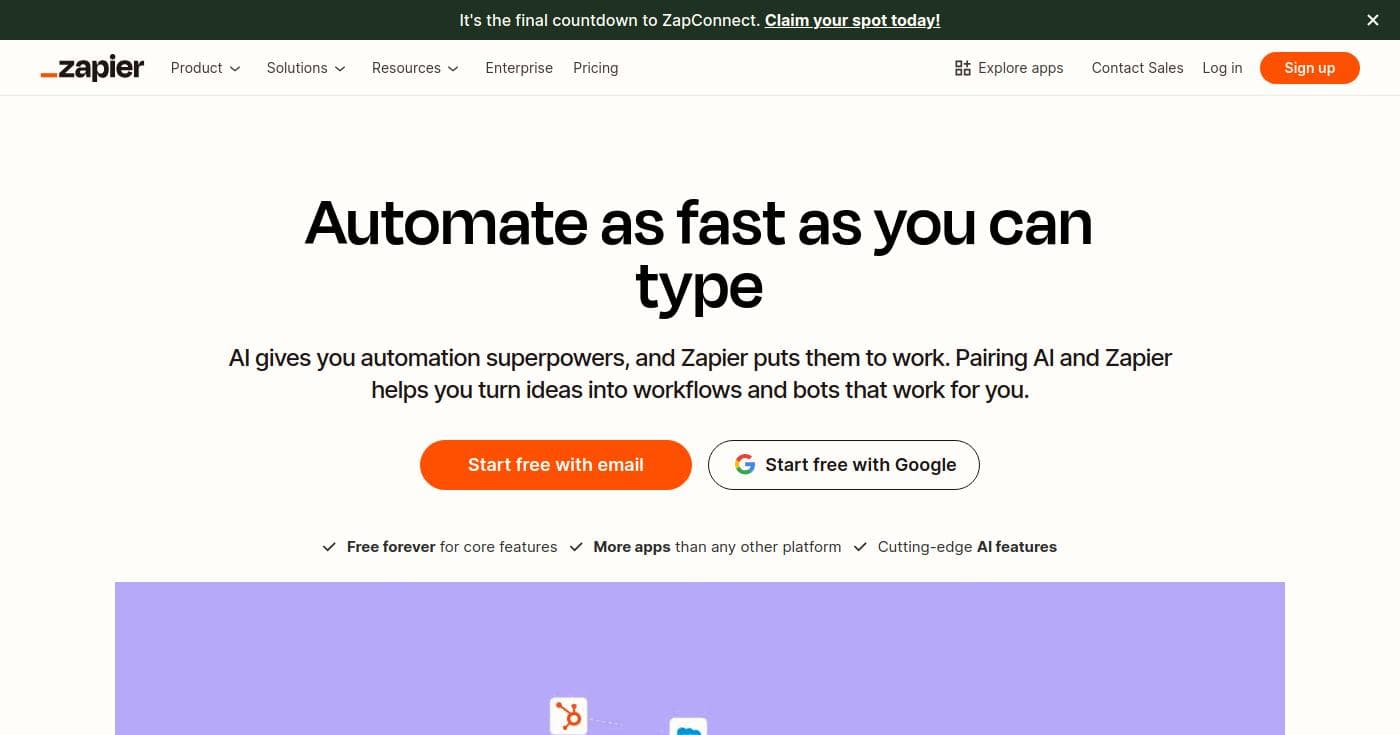
Zapier starts at $19.99/month, providing various plans to accommodate different user needs.
Check their pricing page for more details.
Best for lead enrichment and data intelligence.
Clearbit offers powerful APIs that enhance lead intelligence and customer data management.
Marketers can gain insights into their leads, making it easier to tailor outreach strategies effectively.
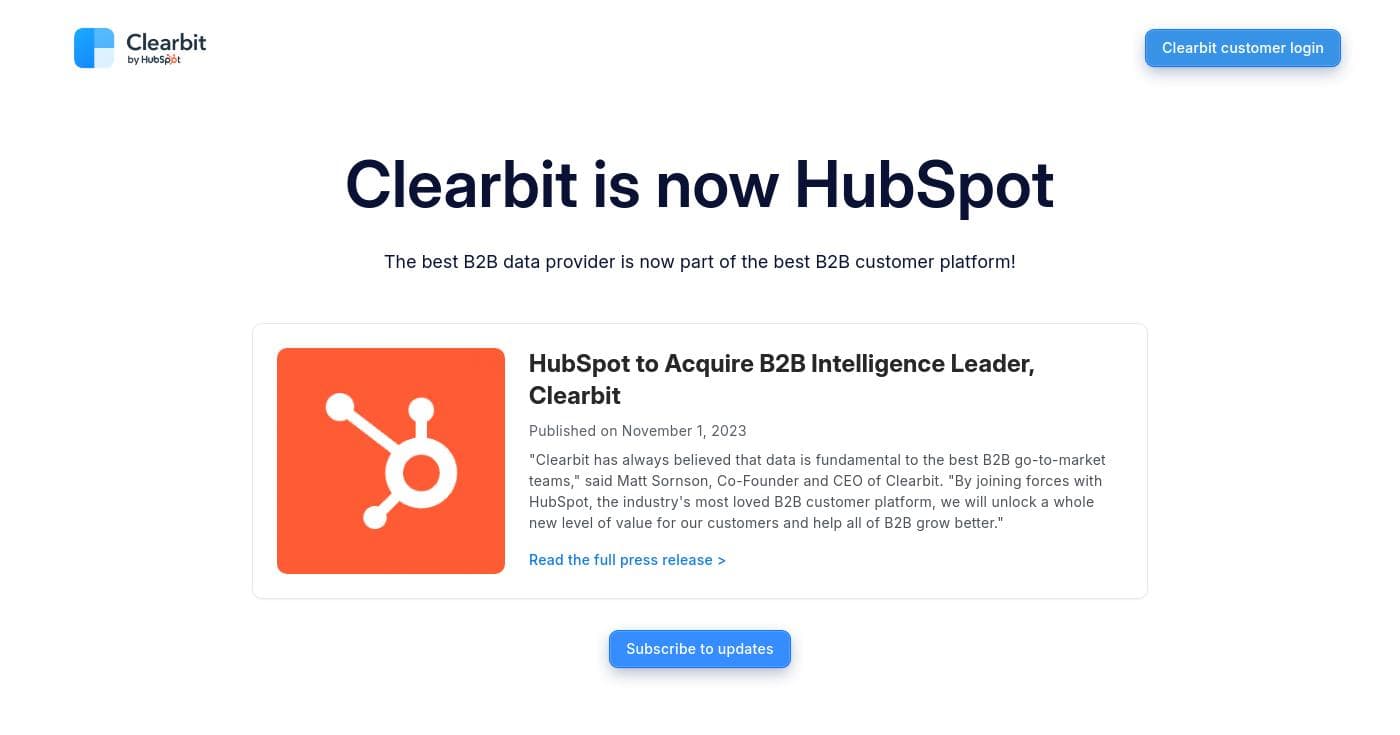
Clearbit operates on a custom pricing model.
For specific details, visit their pricing page.
Best for B2B contact information and sales intelligence.
ZoomInfo provides comprehensive B2B data that empowers sales and marketing teams.
Its APIs offer access to a vast database of contacts and company information, enabling targeted outreach.
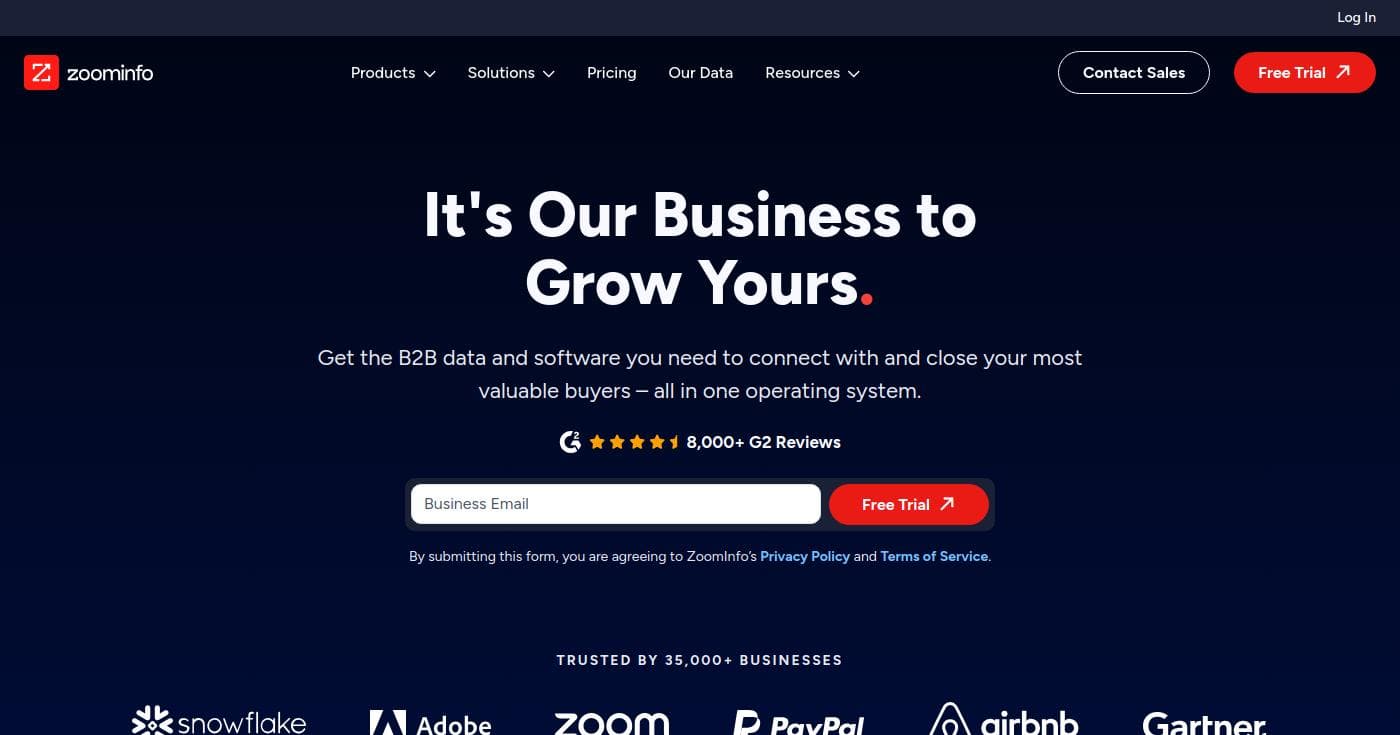
ZoomInfo’s pricing is custom based on user needs. For more information, visit their pricing page.
Best for email automation and delivery.
Mailgun specializes in email delivery solutions tailored for marketers.
With its powerful APIs, users can automate email campaigns, track performance, and improve deliverability.
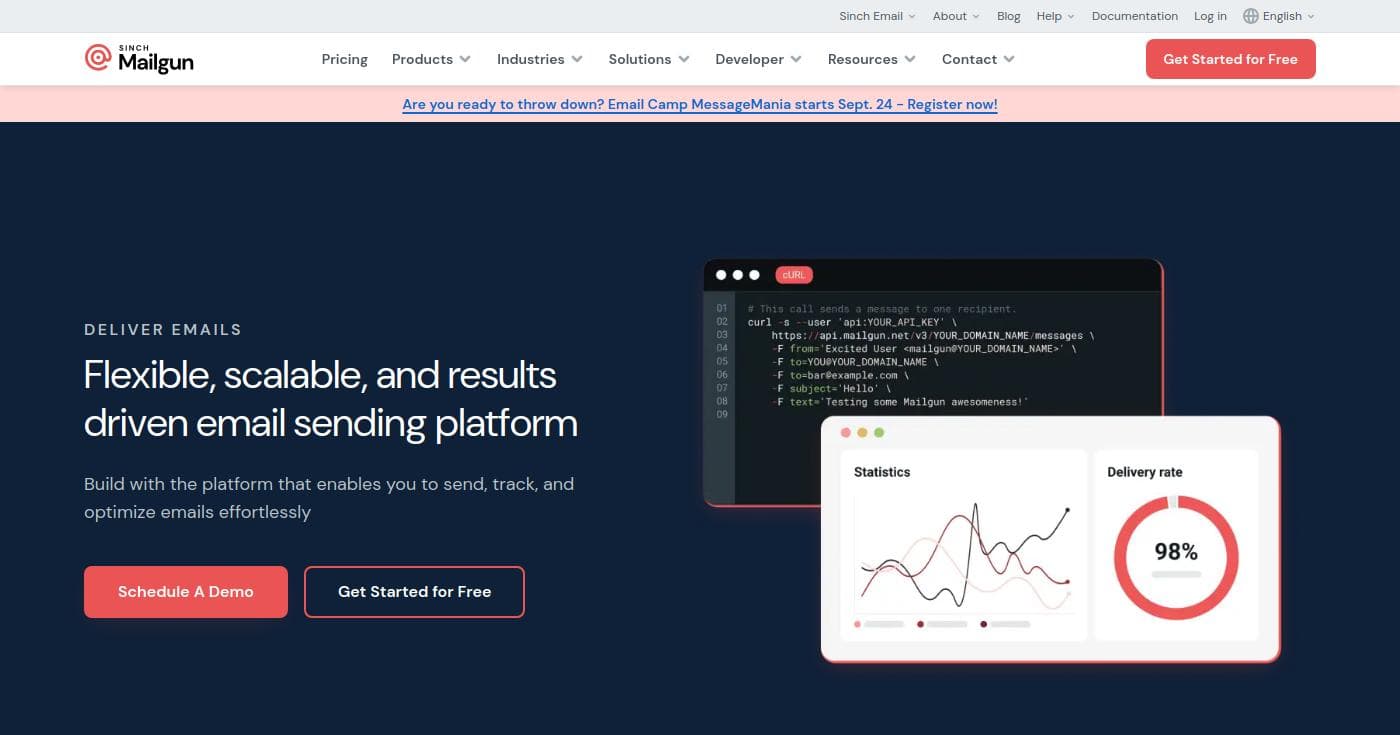
Mailgun starts at $15/month, offering a scalable solution for different business needs.
More details can be found on their pricing page.
Best for customer data management and integration.
Segment is a customer data platform that helps marketers collect and utilize their customer data effectively.
Its APIs enable seamless data integration across various marketing tools.
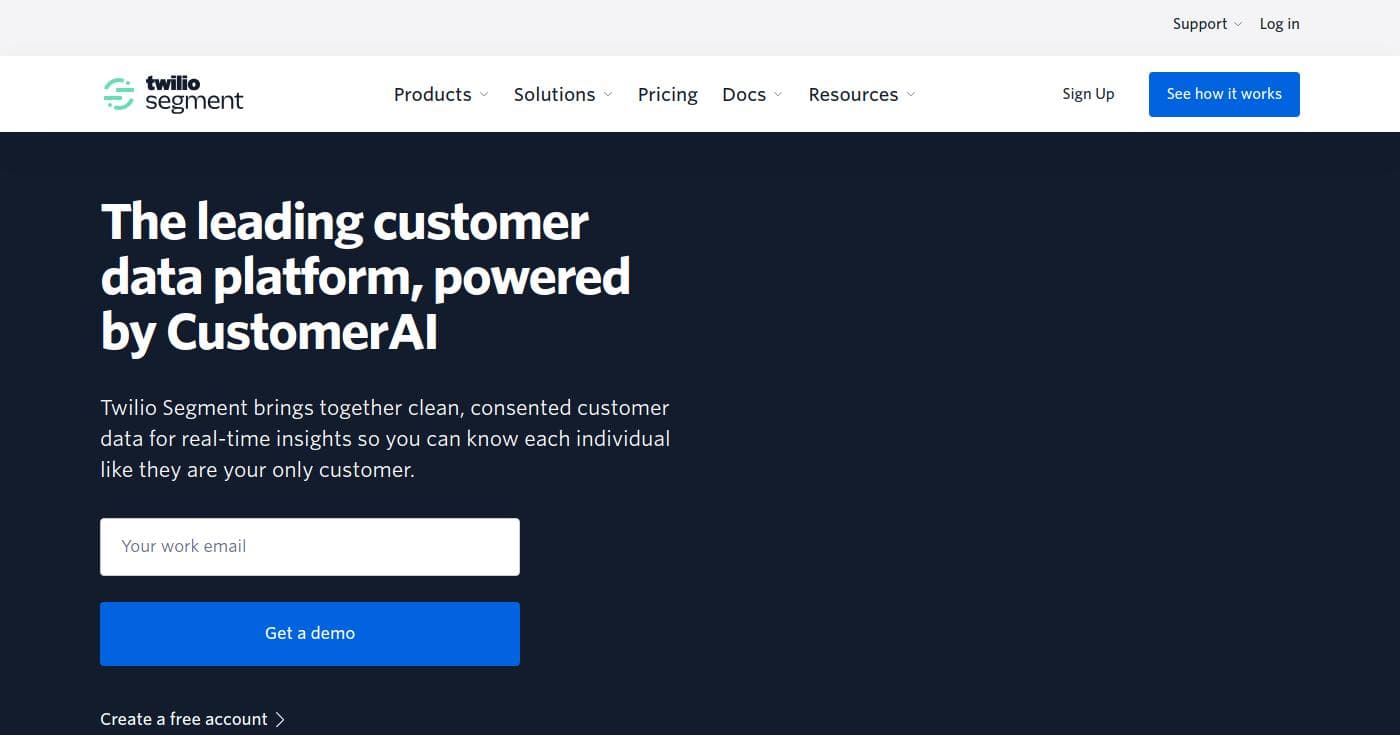
Segment starts at $120/month, providing comprehensive data management tools.
For more information, visit their pricing page.
Best for inbound marketing and CRM functionalities.
HubSpot offers a complete inbound marketing solution that includes powerful APIs for marketers.
It covers everything from email marketing to CRM, streamlining the entire marketing process.
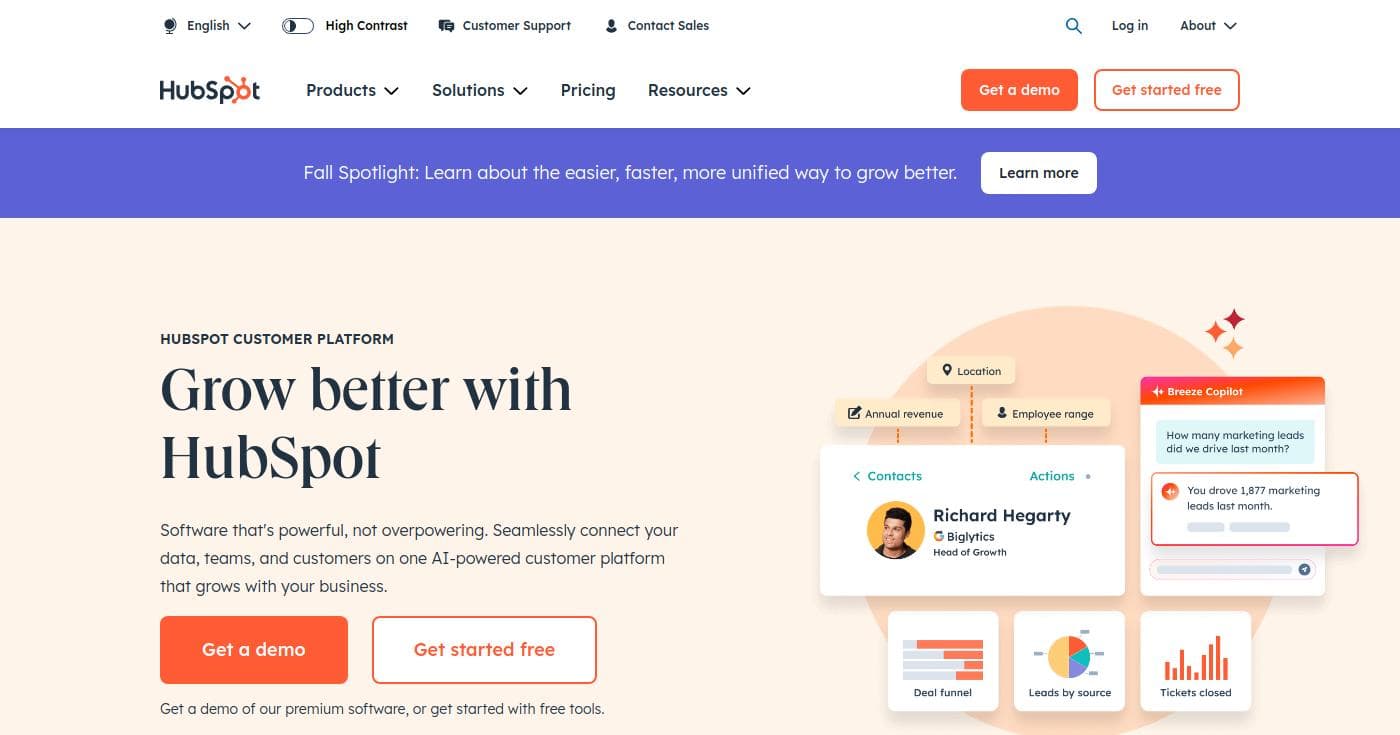
HubSpot offers a free tier with essential features, while advanced tools are available in paid plans starting at $45/month.
Check their pricing page for more details.
Best for web analytics and visitor tracking.
Google Analytics is the go-to tool for marketers seeking insights into website performance and user behavior.
Its APIs provide access to a wealth of data that can inform marketing decisions.
Google Analytics is free with premium features available in Google Analytics 360. More details can be found on their pricing page.
Best for CRM and marketing automation.
Salesforce is a leading CRM platform that offers powerful marketing automation features through its APIs.
It’s an essential tool for teams focused on sales and customer relationship management.
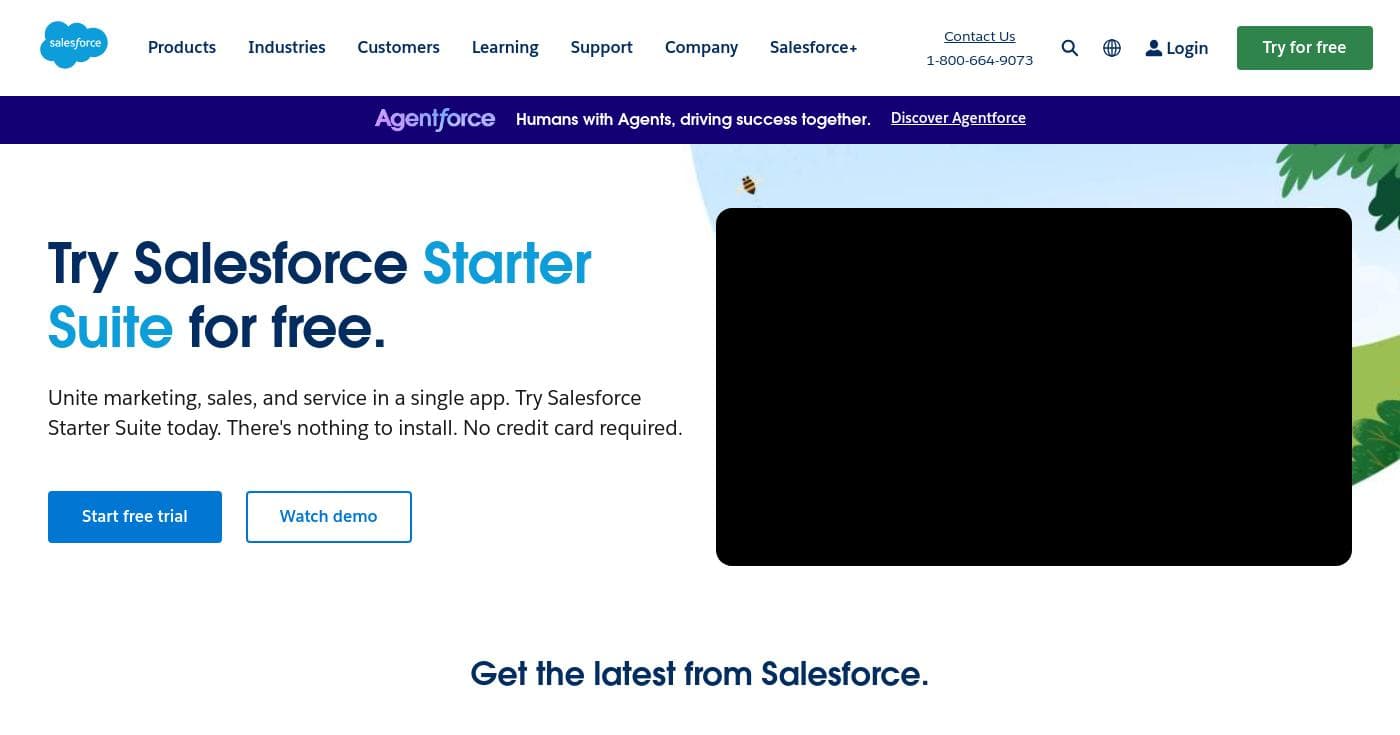
Salesforce starts at $25/month, offering various plans suited for different business sizes.
Visit their pricing page for more information.
Best for communication and messaging solutions.
Twilio provides APIs that enable marketers to send SMS, make calls, and engage customers through various communication channels.
This versatility makes it a top choice for marketers focused on customer engagement.
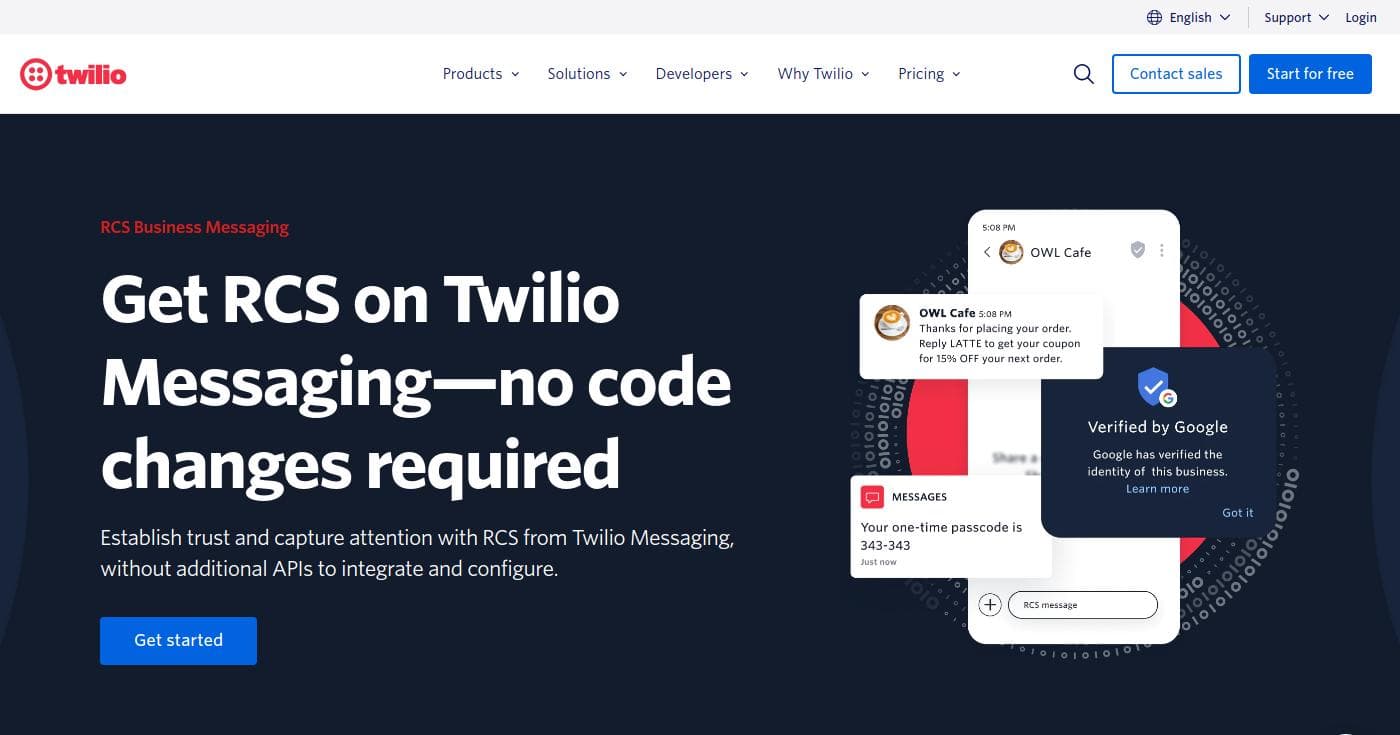
Twilio operates on a pay-as-you-go basis, allowing flexibility in spending.
For detailed pricing, visit their pricing page.
Selecting the ideal APIs for marketers depends on your specific requirements and use case. Consider these crucial factors:
Understanding your specific needs and analyzing these factors will help you select the most suitable APIs for your marketing tasks.
Choosing the right APIs for marketers is essential for optimizing your marketing efforts.
By leveraging the top tools outlined in this list, you can enhance your marketing strategies, improve data capabilities, and ultimately drive better results.
Evaluate your specific needs and explore the top picks to find the ideal solutions for your marketing objectives.
The best APIs include Proxycurl for data enrichment, Zapier for workflow automation, and Clearbit for lead intelligence.
Each offers unique features tailored to different marketing needs.
APIs facilitate seamless integrations between tools, automate workflows, and provide access to valuable data, enabling marketers to optimize their strategies effectively.
Pricing varies widely, with options ranging from free tiers to custom pricing based on usage. It’s essential to evaluate each API’s pricing structure to find the best fit for your budget.
Yes, APIs like Proxycurl and Clearbit specialize in data enrichment, providing detailed insights that enable marketers to create more targeted campaigns.
The integration of AI and increasing demand for data enrichment are key trends expected to shape the future of APIs in marketing, driving further innovation and efficiency.
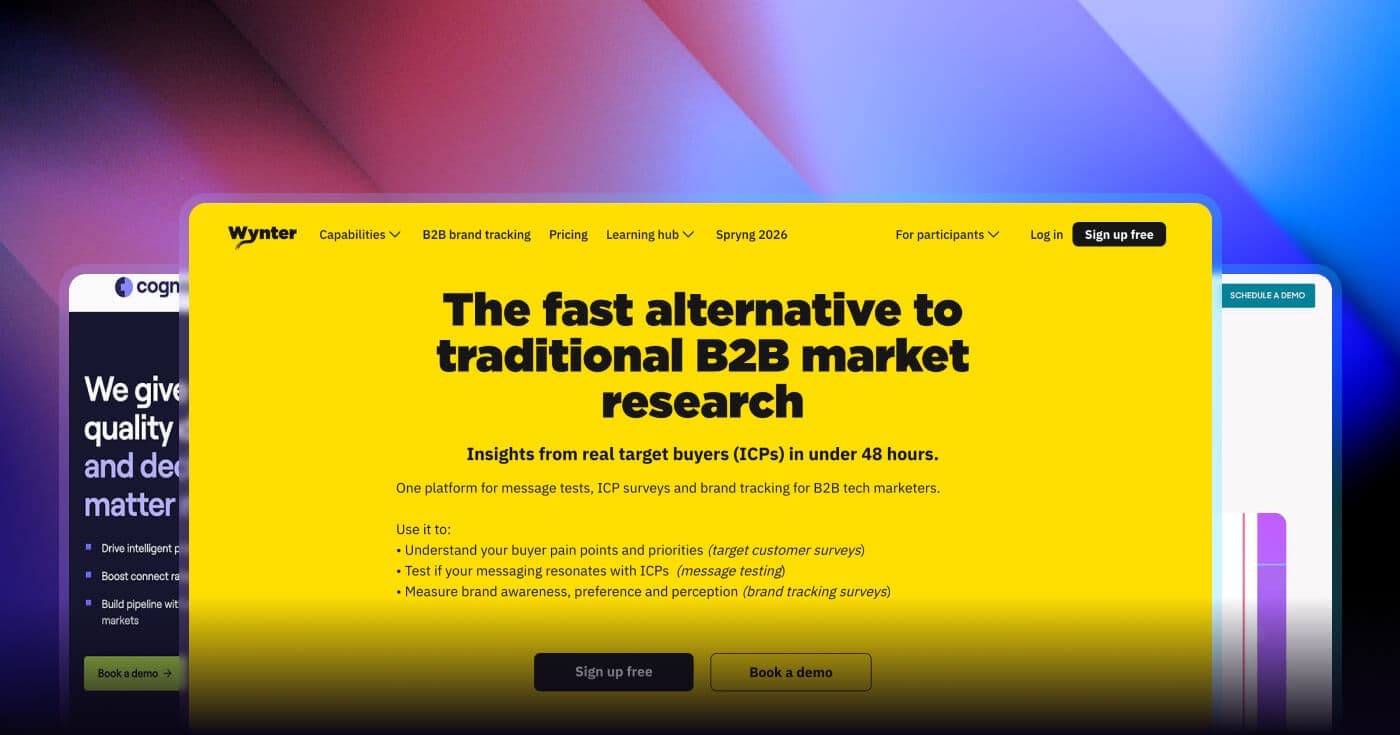
Discover the top 10 B2B market research tools for 2026. Compare features, pricing, and find the perfect solution for your business needs.

Discover the best consumer insights tools to elevate your business strategies this year.

Top 10 Google Alerts alternatives to try in 2026 for monitoring brand mentions, competitors, and customer feedback.